How a poorly puppy inspired a pet food success story
- Published
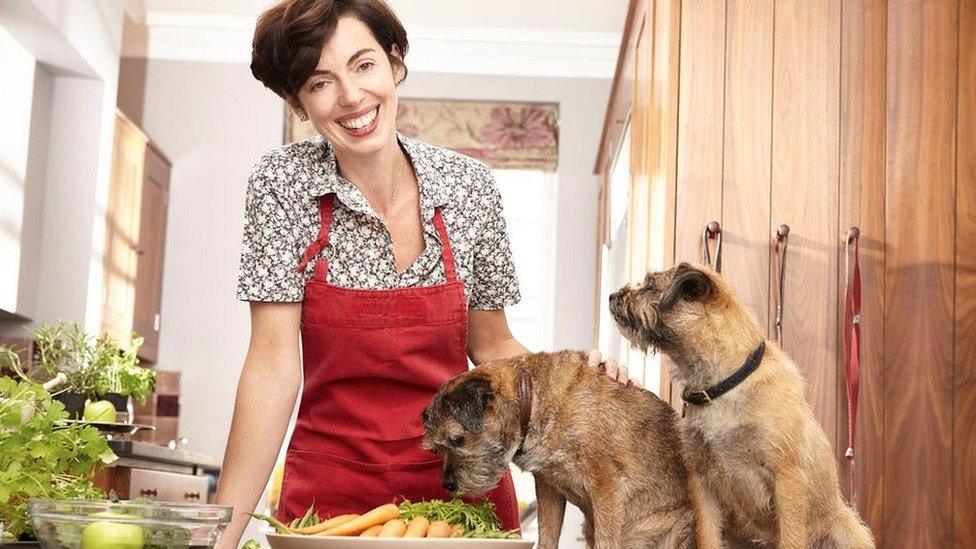
Henrietta was inspired to set up the firm after her own dog Lily refused to eat her normal food
There were times when Henrietta Morrison felt like giving up when trying to get her pet food idea off the ground.
She knew the type of products she wanted to sell, but finding a factory prepared to make them her way proved far more difficult than expected.
Unlike most mass-produced pet food, Henrietta wanted to use fresh meat as well as less predictable ingredients, such as vegetables and even blueberries.
"They laughed at me - they literally thought I was mad," she recalls after trekking to factory after factory in 2008.
But as luck would have it, her search coincided with the recession, which meant one factory had spare capacity. It agreed to make pet food using fresh ingredients, and Henrietta's brand, Lily's Kitchen, was born.
The idea came to her after Lily, her border terrier, became ill and refused to eat her normal food. In a last-ditch attempt to tempt Lily back to her bowl, Henrietta started cooking meals for her featuring lamb, lentils and vegetables in the kitchen of their north London home.
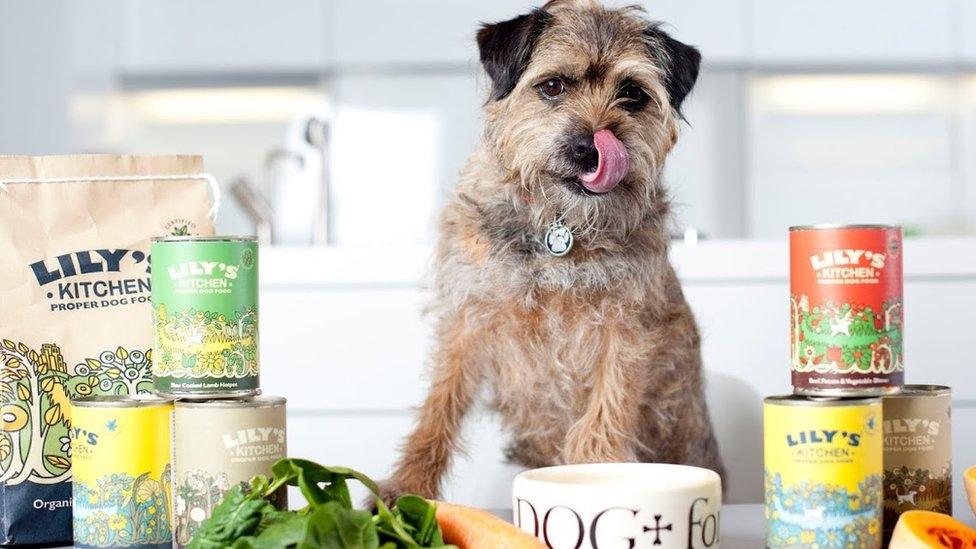
The company now sells 90 different products
The trick worked, and got Henrietta thinking: "Why doesn't pet food smell delicious and have human-grade ingredients?"
She became a "woman on a mission", quitting in the final stages of a three-year garden design course, and remortgaging her house, in a bid to make her dream a reality.
"I know it sounds crazy, but I had this sense of urgency - I thought I had to set up a pet food company because thousands of people like me are unwittingly feeding their pets food that is making them ill."
There were just seven products in the initial range - including chicken and turkey casserole for dogs, which remains the company's most popular product. There are now 90, spanning both wet and dry food for cats as well as dogs, along with "treats".
After initially selling through vets, independent retailers, and from its own website for about five years, Ocado and then Waitrose started selling Lily's Kitchen products.
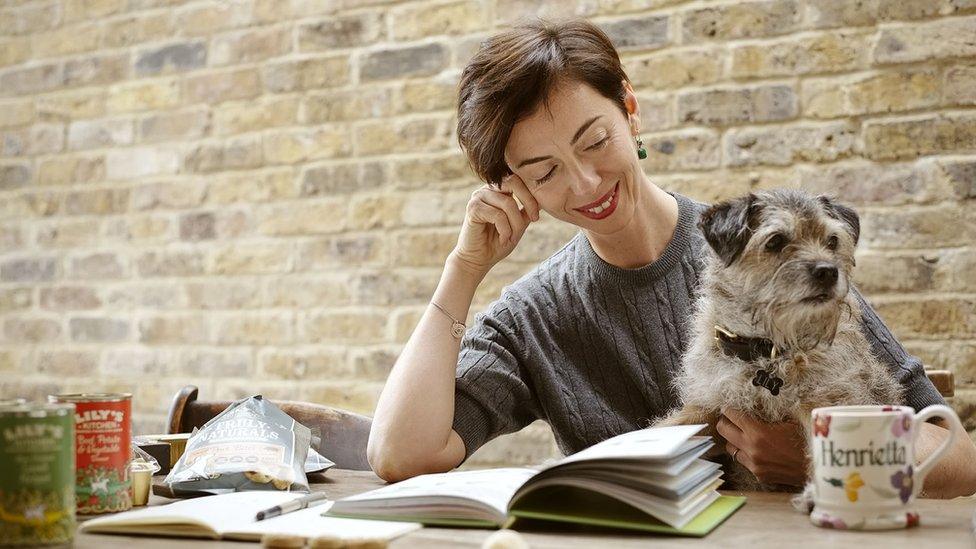
Henrietta has given all employees a stake in the business
Henrietta went to a Waitrose store to see how the items looked on the shelves, only to be convinced that she had made a terrible mistake by expanding to supermarkets.
Her dog food was directly above a pack of six of bestseller Pedigree Chum - but one can of Lily's Kitchen cost the same as the multipack from US giant Mars.
"This is not going to work - people are not going to understand the difference," the 49-year-old remembers thinking at the time. "It did really shake my confidence."
Those fears turned out to be misplaced - "we have done incredibly well at Waitrose" - and were followed by deals with Tesco, Morrisons, Pets at Home and Sainsbury's.
Trishna Shah, an analyst at market research group Euromonitor International, says that London-based Lily's Kitchen is "going from strength to strength" with double-digit growth last year, despite a declining market as pet ownership falls.
Leading brands made by giants such as Mars and Nestle are losing share to smaller players such as Lily's, Ms Shah adds.
"Pet owners are looking for the same quality of pet food as they would feed themselves," says the analyst. "As a result, there has been an increased preference for small luxury brands because of their perception to be more healthy and natural."
Supplying big supermarkets has required Lily's Kitchen to increase production - and also improve its IT systems to ensure everything worked smoothly.
To help pay for this, and expand sales to several European markets, Henrietta secured private equity funding a couple of years ago, but she maintains a majority share in the business.
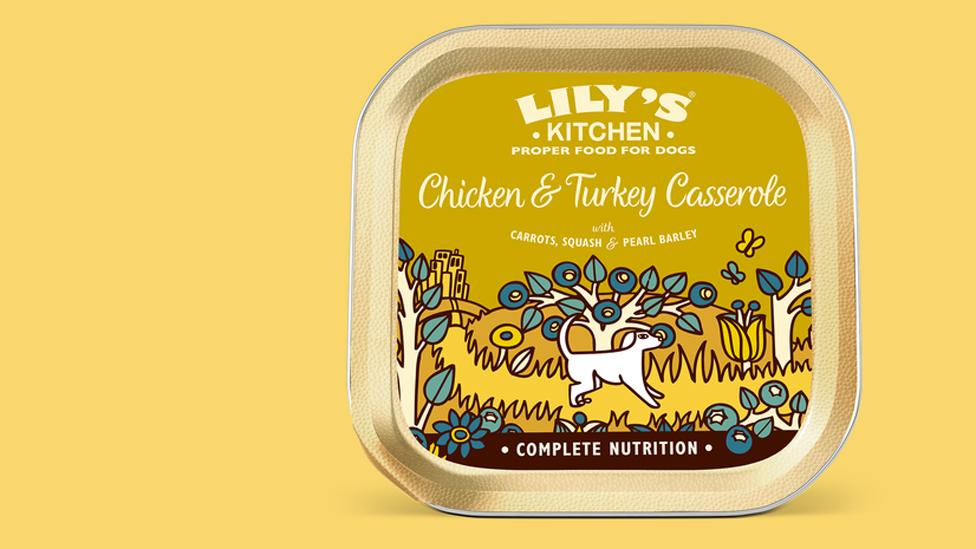
The company is now selling overseas
It's a far cry from humble beginnings at her kitchen table with one employee, and having to share the phone. However, Henrietta admits that the first few years were "really gruelling", with no idea if things would work out. "That's why you need passion - to keep going," she says.
Her faith was not misplaced. The business now has an annual turnover of £40m and 67 employees. Many members of staff have come from far bigger consumer goods companies, and all have a stake in the firm.
"There's always a lot of focus on the start-up phase of a business, but it's the growth phase I think is really difficult," says Henrietta.
She adds: "You're completely having to shape shift at that point - going from two employees, to five, to 10, is manageable, but 85? You need an HR team - it's a different level."
Henrietta realised she needed help after her workforce reached 25 people, but admits: "It's hard to let go - it really is." The leadership team now consists of seven people, and Henrietta says she has learned to trust their expertise and ideas.
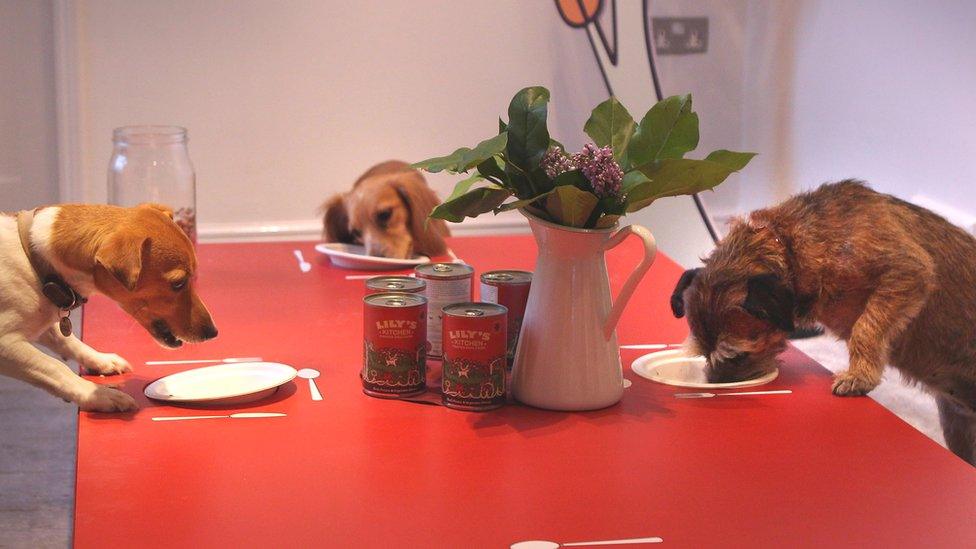
In 2010 the firm launched a pop-up 'dog diner' to raise money for a canine charity
When it comes to the wider pet food sector, Henrietta says that after going to a girls' school and a women's college at Cambridge, she found that the lack of women in the industry came as something of a shock.
Even now she can go to a trade function and find "the only other woman there is the person taking the coats".
She adds: "It happens all the time. If I'm turning up for business lunches and dinners, and I'm the only woman, in this day and age I think that's really appalling."
Yet in Henrietta's view, the lack of women in senior roles across all industries is partly a question of confidence.
"If I interview a senior director-level male candidate he'll say 'I'll definitely be able to handle that' even if he hasn't done it before. But a woman will say 'I just need you to know I've never done that before, so I don't know if I'll be able to do it'. It's a question of confidence."
At Lily's Kitchen three quarters of the workforce are women.

More The Boss features, which every week profile a different business leader from around the world:

As well as being one of the few female entrepreneurs in the pet food sector, Henrietta may be the only one who is also gay.
"It's just really important to have role models - people think the whole 'gay thing' is over and done, but it just isn't," she says.
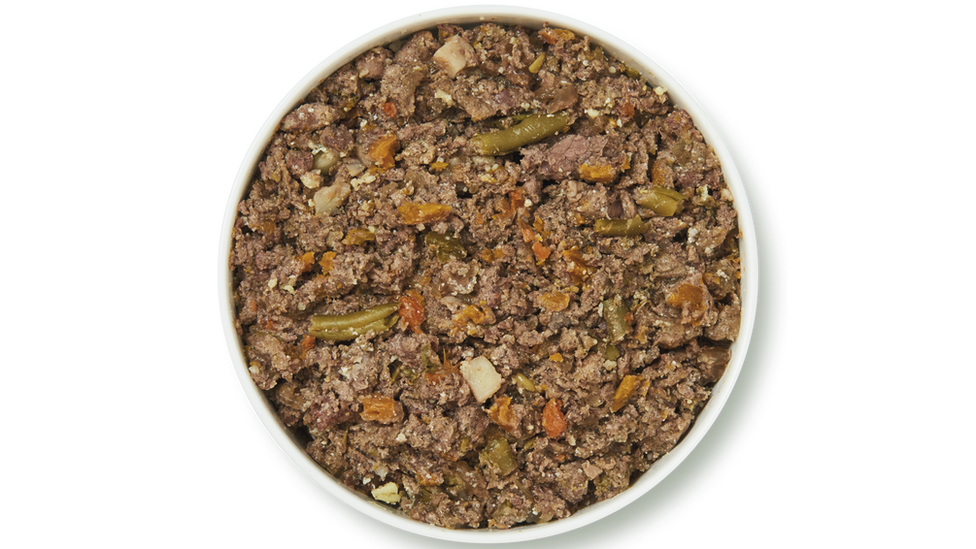
Vegetables are a key ingredient in Lily's Kitchen dog food
Apart from being passionate, Henrietta's advice for other budding entrepreneurs is perhaps counterintuitive - to do something you know nothing about.
"Being able to approach pet food with a real beginner's mind has been so helpful - I didn't have any baggage about what was possible."